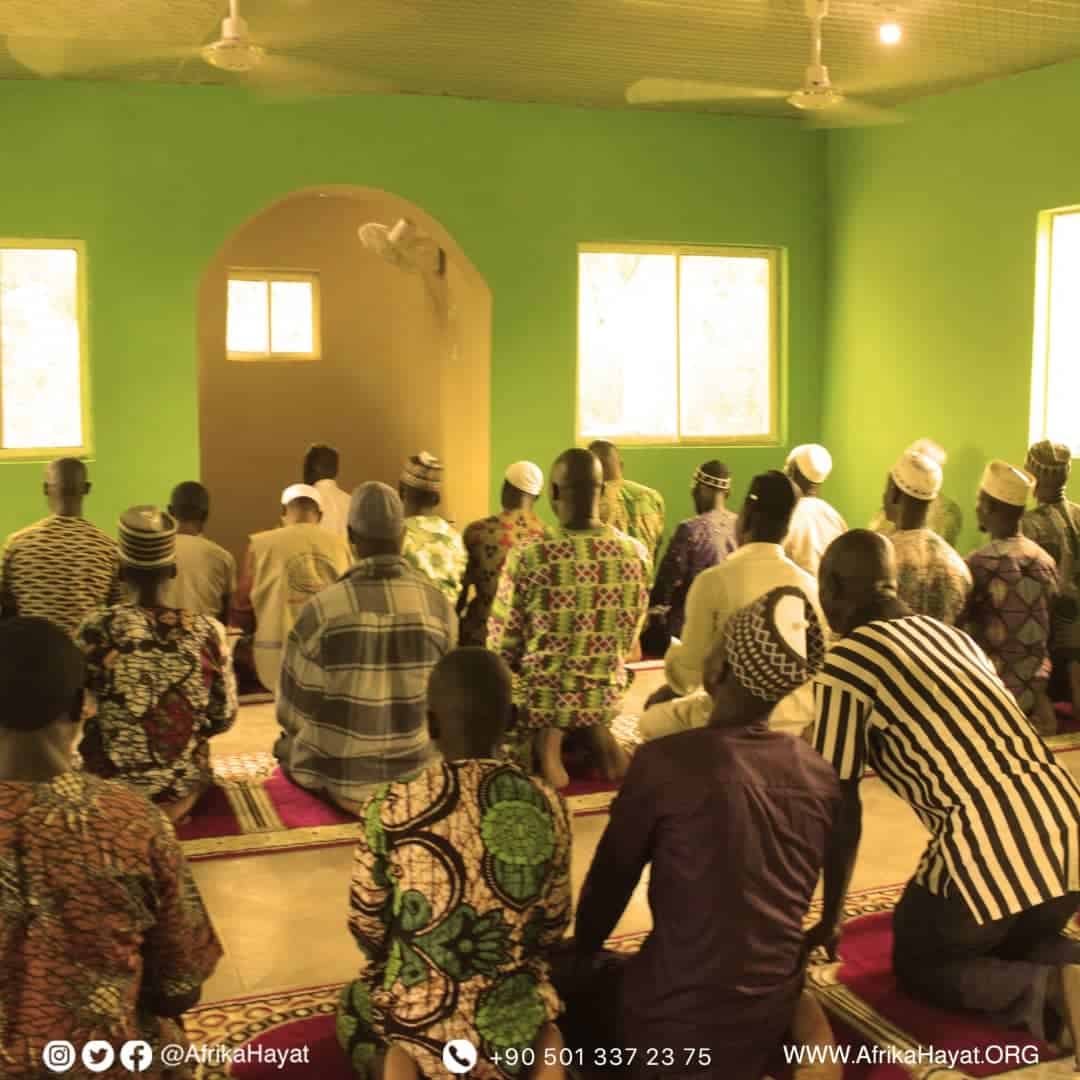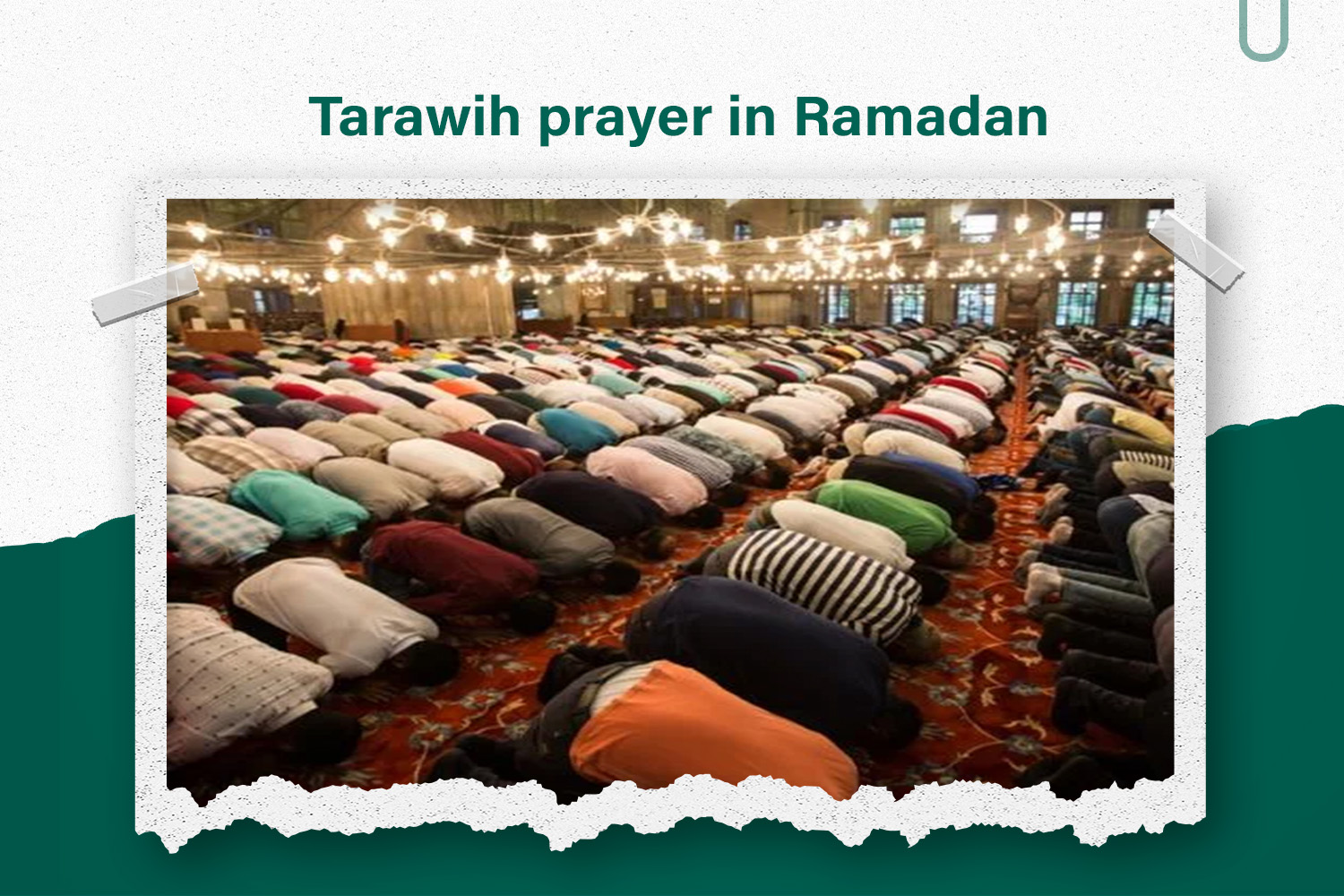Tarawih prayer in Ramadan
Taraweeh prayer is a navlah prayer that is prayed in the holy month of Ramadan after the Isha prayer. Taraweeh prayer is considered a confirmed Sunnah, in which Muslims perform a series of additional Rak’ahs after the Isha prayer in a congregation. Taraweeh prayer is characterized by the recitation of parts of the Holy Quran audibly and in a certain order, and continues until the chord prayer, which is the last conclusion of the prayer.
Definition of Tarawih prayer
Taraweeh prayer is a navlah prayer that is prayed in the holy month of Ramadan after the Isha prayer. This prayer is considered a confirmed Sunnah, as Muslims gather in mosques to perform a series of additional prostrations after the Isha prayer. Taraweeh prayer is characterized by the recitation of parts of the Holy Quran audibly and in a certain order, and continues until the chord prayer, which is the last conclusion of the prayer. Taraweeh prayer is an opportunity for Muslims to get closer to Allah and strengthen spirituality in the month of Ramadan.
The virtue of Tarawih prayer
Tarawih prayer has a great merit in Islam. The performance of this prayer in the holy month of Ramadan is rewarded with a great reward from Allah. It is considered one of the proven sunnahs, enhances spirituality and brings the Muslim closer to Allah. In addition, reciting parts of the Holy Quran during this prayer strengthens the religious sense, renews determination and continues to worship.
How to perform Taraweeh prayer
Taraweeh prayers are performed in the form of consecutive Rak’ahs, which are usually between two and four Rak’ahs. The worshipper must recite a part of the Holy Quran in each Rak’ah. Prayer can be performed at mosque gatherings, where the imam reads the Quran and the worshipers follow him in kneeling and prostrating. It is important that the prayer be organized, disciplined and performed at the appointed times.
The importance of prayer arrangement
The order of Tarawih prayers is of great importance in worship and concentration. The order of prayer helps to organize worship and draw a clear path for worshipers. Regularity in the performance of prayer contributes to the strengthening of spiritual discipline, stimulation of continuity and devotion to worship. Also, the order serves to ensure that the obligatory and Sunnah for one prayer is performed correctly and in a timely manner.

How to divide Rak’ahs
The RAK’ahs of Tarawih prayer are divided into equal groups of RAK’ahs, usually a certain number of RAK’ahs are performed in each group. For example, Taraweeh prayer can be divided into 8 Rak’ahs, where the worshiper performs 4 Rak’ahs and then rests a little before performing the other set of four Rak’ahs. This method is considered famous and widespread in many mosques.
Suitable times for Tarawih prayer
Offering the Taraweeh prayer should be after the Isha prayer and before the chord prayer. Early time is very popular because people prefer to finish early and have enough time to rest and sleep. However, there are many mosques that offer Taraweeh prayers in the late hours of the night to give many people the opportunity to participate. This depends on the traditions of each particular country or mosque.
Offering prayer
Taraweeh prayer is offered after the Isha prayer and before the chord prayer. Many people prefer to offer them in the early hours of the night to have the opportunity to rest and sleep. However, there are some mosques that offer Taraweeh prayers at late hours to meet the needs of many people. The time of offering a prayer depends on the religious rites and traditions of each community.
The best time to perform prayer
The best time to perform Tarawih prayer varies according to the religious traditions and customs of each community. Usually, Tarawih prayers are offered in the early hours of the night after the evening prayer. However, there are some mosques that offer it late at night to suit many people. The early prayer procedure is aimed at giving people the opportunity to rest and sleep to restore activity during the day of Ramadan. In the end, the time of Prayer performance is related to cultural considerations and traditions in each region.
The benefits of Tarawih prayer
Tarawih prayer has many spiritual, mental and physical benefits. Among the spiritual benefits, prayer helps to strengthen spiritual belonging and communication with God. As for the mental benefits, Taraweeh prayer helps in meditation, calming down and enhancing the ability to concentrate. While physical benefits improve flexibility and overall health. In addition, Tarawih prayer is an opportunity for reflection and socialization with other Muslims.
Spirituality of prayer
Tarawih prayer is an opportunity to strengthen spiritual belonging and deepen contact with God. They contribute to the achievement of inner tranquility, deep contemplation and strengthen confidence in God. This prayer is considered a direct connection with the spiritual universe, giving thanks and supplication to God. By meditation and concentration in prayer, the soul is purified, the heart is renewed, spiritual awareness and communication with the spiritual world are strengthened.

Meditation and calming
Tarawih prayer is considered an opportunity for meditation and spiritual pacification. This allotted time in prayer allows the worshiper to reflect, reflect on his spiritual state and renew the heart. Prayer can provide the worshiper with inner calm and a transition to a state of tranquility and peace. Focusing on the words of prayer and meditating on their meanings, prayer can strengthen spiritual awareness and closeness to God.
Prayer of Tarawih
Dua Taraweeh is an important part of Taraweeh prayers in Ramadan. The person who prays turns to God with prayers and asks him for needs and desires. Therefore, Taraweeh Dua excels that it strengthens the connection between the slave and his Lord, contributes to the renewal of recognition of the power and mercy of God. It is known that a retreat on the list of famous duas enhances spirituality during this blessed time of Ramadan.
The importance of mentioning Dua
Mentioning Dua during Tarawih prayers is of great importance. Prayer is a way of contacting God and asking for our needs and desires from him. The mention of Dua enhances spirituality, inner harmony, renews recognition of the power and mercy of God. Taraweeh prayer is an excellent time for deep communication with God and supplication to him with needs and requests.
Famous supplications for Tarawih prayer
There are many famous duas that worshipers recite during Tarawih prayers. Among these supplications, “O Allah, you are forgiveness, you love forgiveness, so forgive us”, ” O Allah, you are peace and from you peace, Blessed Are You, O Majesty and honor”,”O Allah, guide me in whom I have given, and heal me in whom I have recovered”, and”O Allah, we are pleased with our fasting and resurrection in this holy month”. The mention of these duas helps to strengthen concentration and spiritual harmony during the Tarawih prayer.
Conclusion
The worshipers conclude the Tarawih prayer with the two salams, where they pray on the right and left. And they feel peace and inner peace after performing this blessed worship. The conclusion is an opportunity for worshipers to reflect on the blessings that God has bestowed on them and to turn to God for obedience and forgiveness. The Taraweeh prayer ends with a prayer to Allah to accept the good worship that they have offered and to help them to continue to perform prayer and worship for the rest of the month of Ramadan.
The importance of continuing to pray
The importance of continuing to pray Tarawih is that it strengthens spirituality and deepens the relationship with God. By continuing to pray, a person is able to develop his concentration and fulfill a spiritual appeal. The worshipper may face challenges in continuity, but persistence and insistence on performing prayer will contribute to the strengthening of worship and the growth of spirituality.
Frequently asked questions about Taraweeh prayer
Taraweeh prayer is a religious practice performed by Muslims during the holy month of Ramadan. Here are some frequently asked questions about Taraweeh prayer:
What is the number of RAK’ahs of Tarawih prayer?
The number of RAK’ahs of Tarawih prayer is not specified, it can reach 8 Rak’ahs or more.
Should I perform Taraweeh prayer?
It is narrated from the Prophet (peace and blessings of Allaah be upon him) that he used to pray Tarawih on a regular basis.
Is it possible to perform Tarawih prayer at home?
Yes, Muslims can perform Taraweeh prayers at the mosque or at home. And in the case of prayer at home, it can be performed individually or collectively.
What are the most desirable supplications in Tarawih prayer?
There are many mustahabb prayers that the worshipper can say in the Taraweeh prayer. Among them are prayers for mercy, forgiveness and reconciliation in this world and the hereafter.
Is it possible to perform Tarawih prayer without Tajweed?
There is no requirement that the worshiper has a perfect intonation for performing Taraweeh prayers. Anyone who is proficient in reading the Quran in general can perform Taraweeh prayers with ease and ease.
You can visit the Ahad Association website to see more projects
Related articles:
The importance and bounty of the month of Ramadan
Join us in our message by donating




